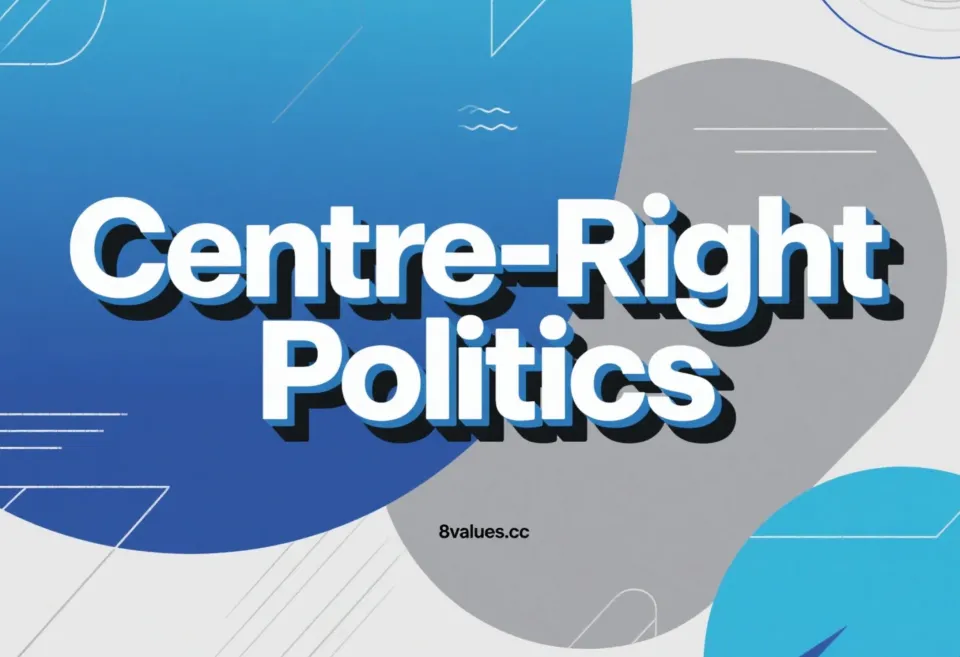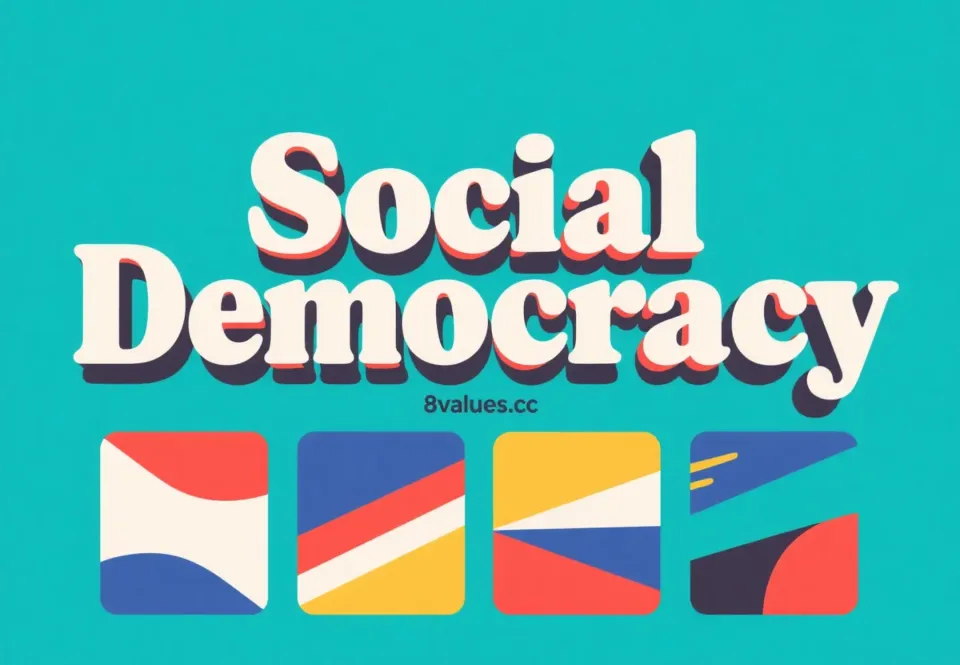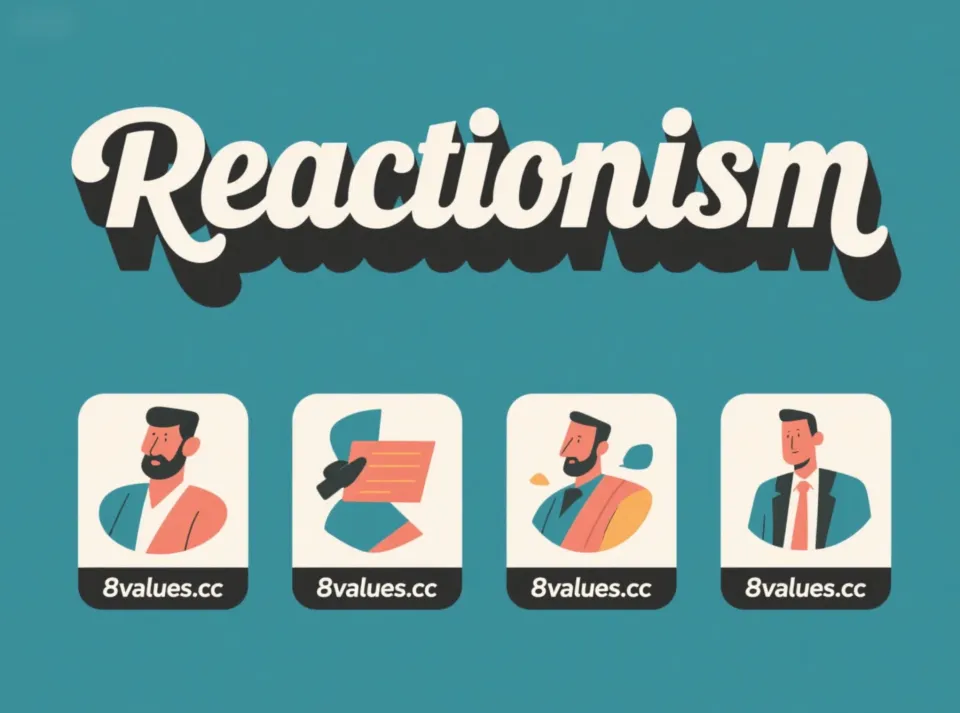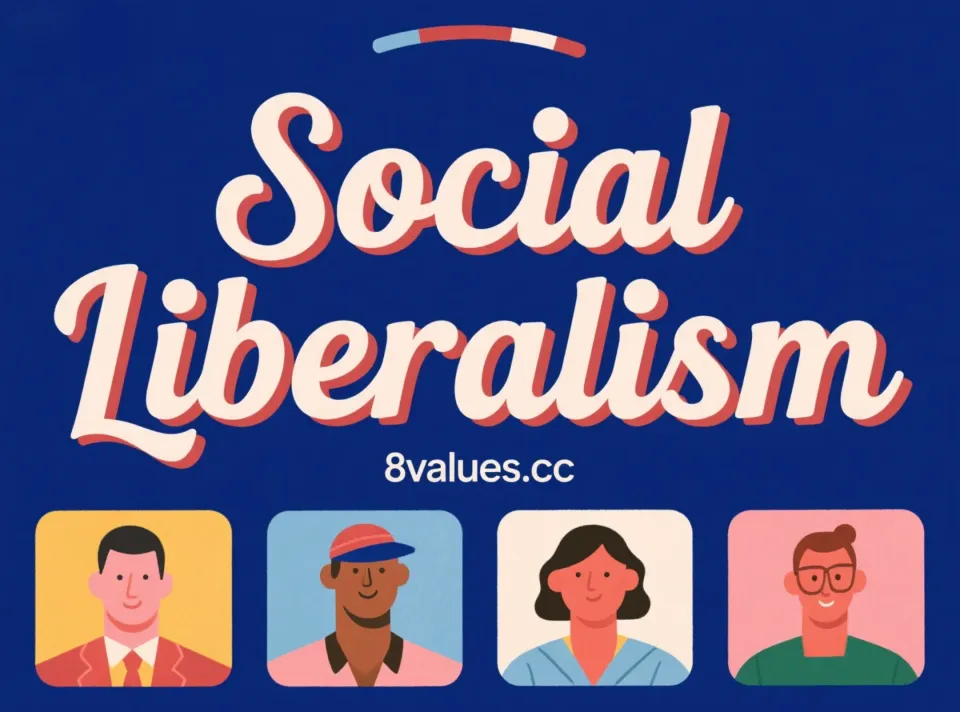Un'interpretazione approfondita della politica di centrodestra
La politica di centrodestra è un’ideologia moderata tra il centro e la destra nello spettro politico. Combina conservatorismo, liberalismo economico, democrazia cristiana e altre scuole diverse. Questo articolo analizzerà in dettaglio le proposte fondamentali, le politiche economiche, le posizioni sociali, l’evoluzione storica della politica di centrodestra e le sfide populiste che deve affrontare nell’era della globalizzazione.
La politica di centrodestra, spesso chiamata anche politica di destra moderata, si trova nel centrodestra dello spettro politico. Questa posizione politica rappresenta un’ideologia politica che tende a destra, ma è più vicina al centro rispetto ad altre varianti di destra. La politica di centrodestra cerca un equilibrio tra sinistra e destra e si impegna a garantire una governance efficace e a soddisfare i bisogni sociali. Per esplorare i tuoi valori politici e le tendenze del tuo spettro ideologico, visita il sito web ufficiale del test sull'ideologia politica 8Values Quiz o vari test popolari sui valori politici e sulle tendenze ideologiche .
La definizione centrale e le scuole ideologiche della politica di centrodestra
Le posizioni politiche di centrodestra si applicano a individui, partiti o organizzazioni e le loro proposte fondamentali includono il sostegno alla democrazia liberale , a un’economia di mercato capitalista , a uno stato sociale limitato e ai diritti di proprietà privata . Il centrodestra è generalmente contrario al socialismo e al comunismo.
Composizione ideologica e diversità
La politica di centrodestra non è un’unica ideologia. È eterogeneo e comprende molte scuole diverse:
- Conservatorismo : solitamente strettamente associato al centrodestra. Tende a mantenere lo status quo socioeconomico esistente e ritiene che le riforme dovrebbero essere attuate gradualmente anziché radicalmente. Il conservatorismo tradizionale enfatizza l’ordine sociale, i valori tradizionali, l’identità nazionale e lo stato di diritto.
- Democrazia cristiana : questa è l’ideologia di centrodestra dominante nell’Europa continentale. Ha applicato l’etica cristiana alla politica e ha sostenuto la democratizzazione, la libertà individuale e la cooperazione internazionale. Sebbene i cristiano-democratici mantengano posizioni conservatrici sulle questioni sociali, sono generalmente più moderati del puro conservatorismo e tendono ad essere centristi sulle questioni economiche. Questa scuola sostiene un’economia di mercato ma è anche disposta a impegnarsi in interventi di mercato per prevenire la disuguaglianza sociale.
- Conservatorismo liberale : combina i valori tradizionali del liberalismo economico e del conservatorismo. Questo genere ha storicamente avuto più successo nei paesi dell'anglosfera come il Regno Unito, l'Australia e la Nuova Zelanda.
- Neoliberalismo : le moderne politiche economiche di centrodestra sono profondamente influenzate dal neoliberismo, in genere sostengono il libero mercato, una spesa pubblica limitata e politiche fortemente legate al neoliberismo. Ad esempio, il thatcherismo e il reaganismo degli anni ’80 sono rappresentanti del neoliberismo nella pratica politica.
Puoi identificare meglio il tuo allineamento con la politica di centrodestra sostenendo il test di orientamento politico degli 8 valori o il test più sfumato sull’ideologia politica dei 9 assi .
Politica economica: libero mercato, governo limitato ed economia sociale di mercato
La politica di centrodestra sostiene i principi del libero mercato nella politica economica e sottolinea i diritti di proprietà privata e la responsabilità individuale .
Liberalizzazione economica e prudenza fiscale
Le politiche economiche del centrodestra in genere favoriscono la riduzione delle tasse , un minore intervento del governo nell’economia e la deregolamentazione . Ritengono che un’economia forte sia il fondamento della prosperità individuale e del successo nazionale e che un intervento eccessivo del governo possa ostacolare l’innovazione e limitare la crescita economica. Il centrodestra sostiene quindi la concorrenza del libero mercato, la privatizzazione, il pareggio di bilancio e la disciplina fiscale .
Quando si affronta la disuguaglianza della ricchezza, il centro-destra tende ad opporsi alle politiche di redistribuzione della ricchezza, sostenendo che agli individui dovrebbe essere consentito di conservare la propria ricchezza. Tuttavia, evitano anche il rifiuto totale della regolamentazione governativa che caratterizza l’estrema destra.
L’equilibrio dell’“economia sociale di mercato”
Il centrodestra sostiene generalmente il modello dell’economia sociale di mercato , un concetto proposto per la prima volta dai democratici cristiani europei dopo la seconda guerra mondiale, soprattutto in Germania. Il modello economico sociale di mercato rifiuta sia il socialismo che il capitalismo laissez-faire .
Secondo questo modello, lo Stato può intervenire moderatamente nell’economia per regolare le pratiche commerciali senza nazionalizzare o violare il libero mercato. Questo equilibrio consente la cooperazione tra datori di lavoro e sindacati e fornisce programmi di assistenza sociale di base. Ad esempio, il modello di “economia sociale di mercato” a lungo perseguito dall’Unione Cristiano-Democratica (CDU) tedesca integra concorrenza di mercato e welfare sociale.
Se vuoi esplorare ulteriormente le differenze tra le diverse ideologie su questioni economiche e distributive, puoi sostenere il test sui valori politici di sinistra LeftValues e il test sullo spettro politico di destra RightValues .
Posizioni sociali e culturali: valori tradizionali e cambiamento progressivo
La politica di centrodestra tende verso posizioni conservatrici su questioni sociali e culturali, ma generalmente in misura più moderata rispetto all’estrema destra.
Mantenere la tradizione e l'ordine
Il centrodestra in genere dà priorità ai valori tradizionali, all’identità nazionale, alla legge e all’ordine . Hanno sottolineato l’importanza della famiglia, della religione e della comunità. In termini di formulazione delle politiche, il centro-destra di solito favorisce riforme incrementali piuttosto che cambiamenti sociali radicali per mantenere l’ordine e la stabilità sociale.
Su questioni sociali, come il diritto all’aborto o il matrimonio tra persone dello stesso sesso, i politici di centrodestra tendono ad avere opinioni conservatrici. Ma con lo sviluppo dei tempi, i partiti di centrodestra europei hanno iniziato a sostenere la protezione dell'orientamento sessuale, e alcuni gruppi considerano addirittura il matrimonio tra persone dello stesso sesso e l'adozione di coppie dello stesso sesso come un'estensione del tradizionale nucleo familiare. Ad esempio, il Partito conservatore britannico ha promosso la legalizzazione del matrimonio tra persone dello stesso sesso durante il mandato di David Cameron, riflettendo il cambiamento del pragmatismo del centrodestra.
Posizione moderata su immigrazione e nazionalismo
Le tendenze nazionaliste del centrodestra sono moderate. Possono sposare un certo grado di nazionalismo, enfatizzando la sovranità nazionale e l’identità culturale, ma generalmente evitano la xenofobia o il razzismo estremi .
Mentre l’opposizione all’immigrazione è spesso associata alla politica di estrema destra, il centrodestra attrae anche elettori che sostengono un’opposizione più moderata all’immigrazione. L’opposizione di centrodestra all’immigrazione si basa spesso su preoccupazioni relative all’identità nazionale e al mantenimento dello status quo sociale. Sostengono controlli più severi sull’immigrazione, un’enfasi sull’integrazione culturale e sulla sicurezza nazionale e potrebbero assumere una posizione più dura contro la concorrenza dei partiti di estrema destra.
Governance, diplomazia e sfide contemporanee
Concetti di governance e cooperazione internazionale
Il centro-destra generalmente sostiene il governo limitato , sostenendo che il ruolo del governo dovrebbe essere limitato principalmente al mantenimento della legge e dell’ordine, alla protezione delle libertà individuali e alla fornitura dei servizi pubblici di base. Credono che il libero mercato possa fornire soluzioni ai problemi e enfatizzare la libertà individuale e la responsabilità personale.
In politica estera, il centrodestra tende a enfatizzare gli interessi e la sovranità nazionale . Potrebbero sostenere un aumento del potere militare e una diplomazia assertiva per proiettare potere e influenza sulla scena globale. Tuttavia, il centrodestra valorizza anche la diplomazia e il multilateralismo , crede nell’affrontare le sfide globali e nella promozione della pace attraverso la cooperazione internazionale e sostiene organizzazioni internazionali come la NATO e l’alleanza transatlantica.
Evoluzione storica e casi globali
Il concetto di politica di centrodestra ha origine dalla disposizione dei seggi nell'Assemblea nazionale durante la Rivoluzione francese : i nobili che sostenevano il re sedevano alla destra del presidente, da qui il nome "ala destra".
Dopo la seconda guerra mondiale, i partiti di centrodestra divennero la forza dominante in gran parte dell’Europa, soprattutto nel contesto della diffusione della democrazia cristiana. I partiti di centrodestra che si unirono dopo la guerra spinsero per importanti compromessi politici storici e giocarono un ruolo importante nel consolidare la democrazia e lo stato sociale.
I tipici partiti di centrodestra in tutto il mondo includono:
- Europa : Unione Cristiano-Democratica Tedesca (CDU) (e il suo partito gemello Unione Cristiano Sociale Bavarese), Partito Conservatore Britannico (Partito Conservatore), Partito Repubblicano Francese (Les Républicains), Partito Popolare Europeo (PPE), ecc.
- Nord America : alcune fazioni del Partito Repubblicano negli Stati Uniti e del Partito Conservatore del Canada.
- Asia : Partito Liberal Democratico del Giappone (LDP).
- Oceania : Partito Liberale dell'Australia, Partito Nazionale della Nuova Zelanda.
Sfide contemporanee: populismo e stretta politica
Dall’inizio del 21° secolo, la politica di centrodestra ha dovuto affrontare molteplici sfide che hanno portato a un calo del suo sostegno. Secondo uno studio del 2019, il sostegno ai partiti di centrodestra è sceso dal 37% nel 1960 a circa il 27% in 21 democrazie occidentali.
Il centrodestra si trova ad affrontare una “doppia stretta” da parte della destra radicale populista e della sinistra progressista .
- La sfida della destra populista : l’estrema destra ha assunto posizioni più radicali su questioni come l’immigrazione, la sicurezza e la sovranità, deviando gli elettori tradizionali del centrodestra. Ciò ha costretto alcuni partiti di centrodestra ad adottare strategie che incorporano alcune idee dell’estrema destra, come l’inasprimento delle politiche sull’immigrazione, ma ciò potrebbe esacerbare le divisioni tra moderati e conservatori all’interno del partito. I politologi sottolineano che se il centrodestra persegue eccessivamente l’“agenda della destra populista radicale”, aumenterà l’attenzione su questioni in cui la destra populista è brava, danneggiando così i propri vantaggi.
- Disuguaglianza economica e pressione sul welfare : il centrodestra deve trovare un equilibrio tra “tagli fiscali per promuovere la crescita” e “mantenimento della sicurezza sociale”. La globalizzazione e il cambiamento tecnologico hanno esacerbato il divario tra ricchi e poveri, rendendo importante per i partiti di centrodestra evitare di essere etichettati come “il partito dei ricchi”.
- Cambiamenti socioculturali : la crescente preoccupazione delle generazioni più giovani per il cambiamento climatico, la giustizia sociale e la diversità culturale ha indebolito la loro identificazione con i valori conservatori tradizionali, costringendo il centrodestra ad affrontare la sfida di una struttura elettorale che invecchia. La tendenza alla secolarizzazione dell'Europa rappresenta una sfida anche per i partiti di centrodestra basati sulla democrazia cristiana.
In questo contesto politico complesso, è particolarmente importante comprendere la propria posizione politica e le proprie tendenze ideologiche. Per saperne di più sull'analisi dell'ideologia e dello spettro politico, rimani sintonizzato sul blog ufficiale del sito ufficiale del test di ideologia politica 8Values Quiz .






